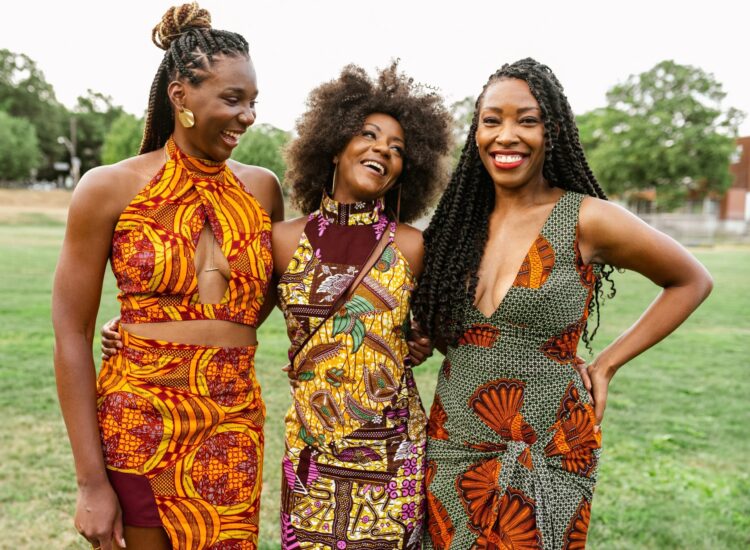As Women’s History Month draws to a close, it’s hard to ignore the overwhelming sense of superficiality that often accompanies it.
We’ve all seen the barrage of marketing emails pushing beauty products under the guise of empowerment or witnessed hollow gestures of support from workplaces with glaring gender disparities. It’s disheartening to witness the commodification of women’s struggles, with 70% of brands and organizations using this month as a mere money-making opportunity.
But amidst the noise, it’s crucial to remember the true essence of Women’s History Month and the imperative to uplift and support Black women authentically, both now and always.
At ECT, we refuse to let empty gestures dilute the significance of this month. Instead, we’re here to remind you of the rich history behind Women’s History Month and to offer practical ways to genuinely appreciate and support the Black women in your life.
Join us in honoring their contributions and advocating for real change.
Why Is Women’s History Month In March, And How Did It Start?

The history of Women’s History Month began with one single day in 1908 in New York City. A multitude of women united and marched for better conditions, labor laws, and the right to vote.
One year later, on February 28, 1909, suffragists and socialists gathered in Manhattan for what they named the first International Women’s Day (IWD).
The idea quickly caught on, and on March 8, 1910, according to the BBC, a German socialist, Clara Zetkin, suggested the recognition of IWD at the International Conference of Women in Copenhagen. The 100 women in attendance (repping 17 countries) all agreed.
On March 8, 1991, the first IWD was celebrated in Austria, Denmark, Germany, and Switzerland. However, the holiday wasn’t largely recognized in the U.S. until the United Nations started sponsoring it in 1975.
In March 1977, in an attempt to persuade school principals to comply with Title IX (passed in 1972 to protect individuals from sex discrimination in federal education programs), a Sonoma County Commission on the Status of Women task force in California created Women’s History Week. It was an instant hit.
In 1979, Molly Murphy McGregor, a National Women’s History Alliance (NWHP) member, spoke at the Women’s History Institute at Sarah Lawrence College. Her presentation on the success of the celebratory week inspired national leaders to bring similar events to their communities. This led to the movement gaining judicial support shortly after its inception.
In March 1980, President Jimmy Carter declared in a Presidential Proclamation that March 8 was officially the start of National Women’s History Week. Congressional support soon followed.
Due to nationwide recognition and increasing support from government, organizations, and state schools, 14 states officially designated March as Women’s History Month in 1986. Then, in 1987, the National Women’s History Project influenced Congress to establish the holiday permanently, expanding it from a week to a month-long celebration.
15 Ways To Support Black Women During Women’s History Month
TL; DR in this list, you’ll find:
- Learn About Black Women In History And Share Their Stories/Accomplishments
- Buy From & Support Black-Woman Owned Businesses
- Promote Black Women’s Health And Well-Being
- Plan A Movie Night/Brunch Celebrating Black Women
- Seek To Learn & Understand About The Issues Black Women Face Today
- Host Or Organize A Book Club Featuring Black Women Written Literature
- Donate To Organizations & Programs Supporting Black Women
- Show Appreciation To The Black Women In Your Life
- Ask For A Raise (Embrace Pay Transparency)
- Listen To Podcasts Hosted And Featuring Black Women
- Join Black Women-Based Clubs/Organizations
- Have A Dance Party To An All-Woman Spotify Playlist
- Mentor & Empower A Young Black Woman
- Ensure You’re Registered To Vote
- Play Women’s History Games & Trivia
Learn About Black Women In History And Share Their Stories/Accomplishments
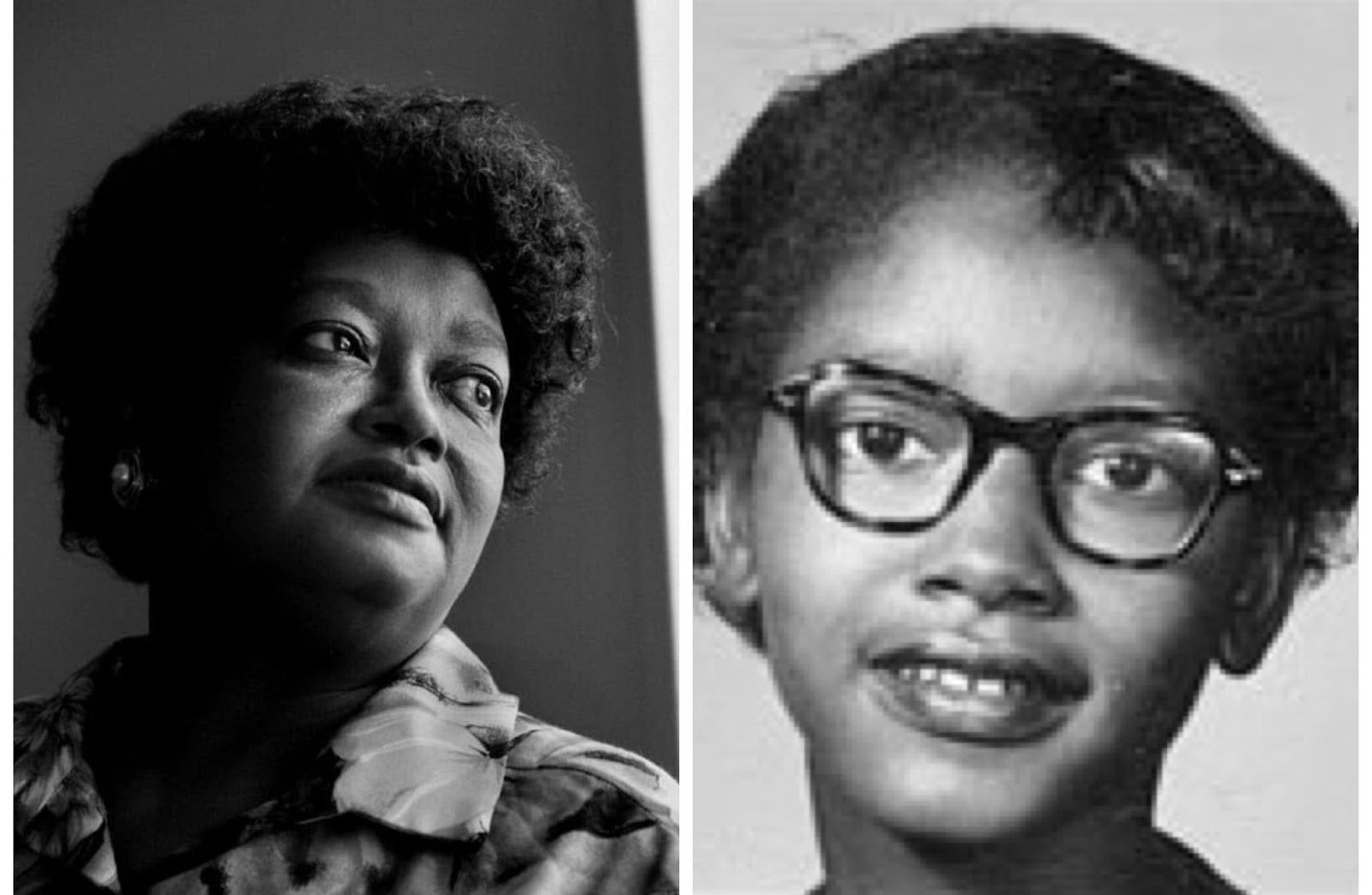
Part of the significance of commemorating awareness months like Women’s History Month lies in preserving the milestones women have achieved in history, which might otherwise be erased or forgotten. Unfortunately, many impactful stories have already been lost to history or attributed to men. Take the time to explore the lives of lesser-known women in history.
For example, have you heard of Dr. Alexa Irene Canady, the first Black woman neurosurgeon in the U.S., or Althea Gibson, the first Black woman to compete at Wimbledon? What about Daisy Bates, who founded one of the first Black newspapers dedicated entirely to the Civil Rights Movement?
There’s also Rosalind Franklin, who discovered the structure of DNA but has been overlooked in history books, while her male colleagues receive all the credit. And let’s not forget Claudette Colvin, the first Black girl to refuse to give up her bus seat to a white person, months before Rosa Parks did. She remained relatively unknown because ‘white people weren’t going to bother Rosa – her skin was lighter than hers, and they liked her.’
Educate yourself, learn about the forgotten figures, and don’t be caught on the wrong side like Jonathan Majors did recently when he compared Meagan Good to Coretta Scott King.
Buy From & Support Black-Woman Owned Businesses

From small local stores to upcoming artists and streaming movies, there are numerous ways to support Black-women-owned businesses.
This Women’s History Month, you can shop online from the comfort of your couch on sites such as Amazon (there’s an entire category of Black-women-owned retailers, Etsy, or browse Black-Owned Business Directories such as BWO (Black Woman Owned) or Buy From A Black Woman as your go-to resources for discovering incredible Black female entrepreneurs.
Promote Black Women’s Health And Well-Being

Beauty and fashion influencer Jessica Pettway’s recent passing from cervical cancer has brought attention to the myriad challenges Black women face within the healthcare system. Pettway, 36, received multiple misdiagnoses, with doctors initially mistaking her intense vaginal bleeding for a symptom of fibroids until her condition deteriorated.
Unfortunately, Pettway’s case isn’t an isolated incident. According to KKF Health News, Black women are 20 to 30% more likely to experience misdiagnosis, often related to cancer. This disparity disproportionately impacts Black women and reflects systemic issues within the medical field.
So, this Women’s History Month, use your voice to illuminate Black women’s issues in the healthcare system and become your greatest advocate because no one else can. If you go for a checkup and doubt the diagnosis, seek a second, third, and even fifth opinion if necessary.
Advocate for yourself and others by demanding equitable and thorough healthcare. By speaking up and raising awareness, Black women can work toward a healthcare system that prioritizes accuracy and fairness for all, regardless of race or gender.
Let’s honor the legacy of phenomenal women like Jessica Pettway by taking proactive measures to ensure better healthcare outcomes for Black women.
Plan A Movie Night/Brunch Celebrating Black Women

Heat the popcorn, pour a glass of the Pinot Noir, and stream a movie or T.V. show featuring Black women-led characters or one produced by a Black woman director/producer. Here are some of ECT’s favorites for Women’s History Month:
- Self-Made Featuring Octavia Spencer, Tiffany Haddish, and Carmen Ejogo
- Hidden Figures Featuring Taraji P. Henson, Jannelle Monae, and Octavia Spencer
- Harriet Featuring Cynthia Erivo and Jannelle Monae
- Queen Sugar Featuring Dawn Lyen Gardner and Tina Lifford. It’s Executive Produced By Ava DuVernay
There are also documentaries such as:
- Becoming By Mitchelle Obama
- Free Angela And All Political Prisoners
- In Our Mother’s Garden
- Black Beauty Effect
- The Color Of Pain
- Screen Queen Rising
Seek To Learn & Understand About The Issues Black Women Face Today

While there have been improvements, there are still areas where Black women face obstacles because of their race and gender. For instance, per the American Association Of University Women (AAUW), the average Black woman earns 36% less than the average White or Hispanic male and 12% less than White women.
Black women also carry the majority of household and childcare responsibilities, deal with workplace biases, and are under-represented in leadership and STEM fields. And let’s not even get into issues such as domestic violence, sexual harassment, trafficking, and rape culture.
Oh, and there are the harmful beauty standards, limited career opportunities, unequal access to education, and pink tax. The list goes on and on – but together, we can create a positive change!
Host Or Organize A Book Club Featuring Black-Women Written Literature
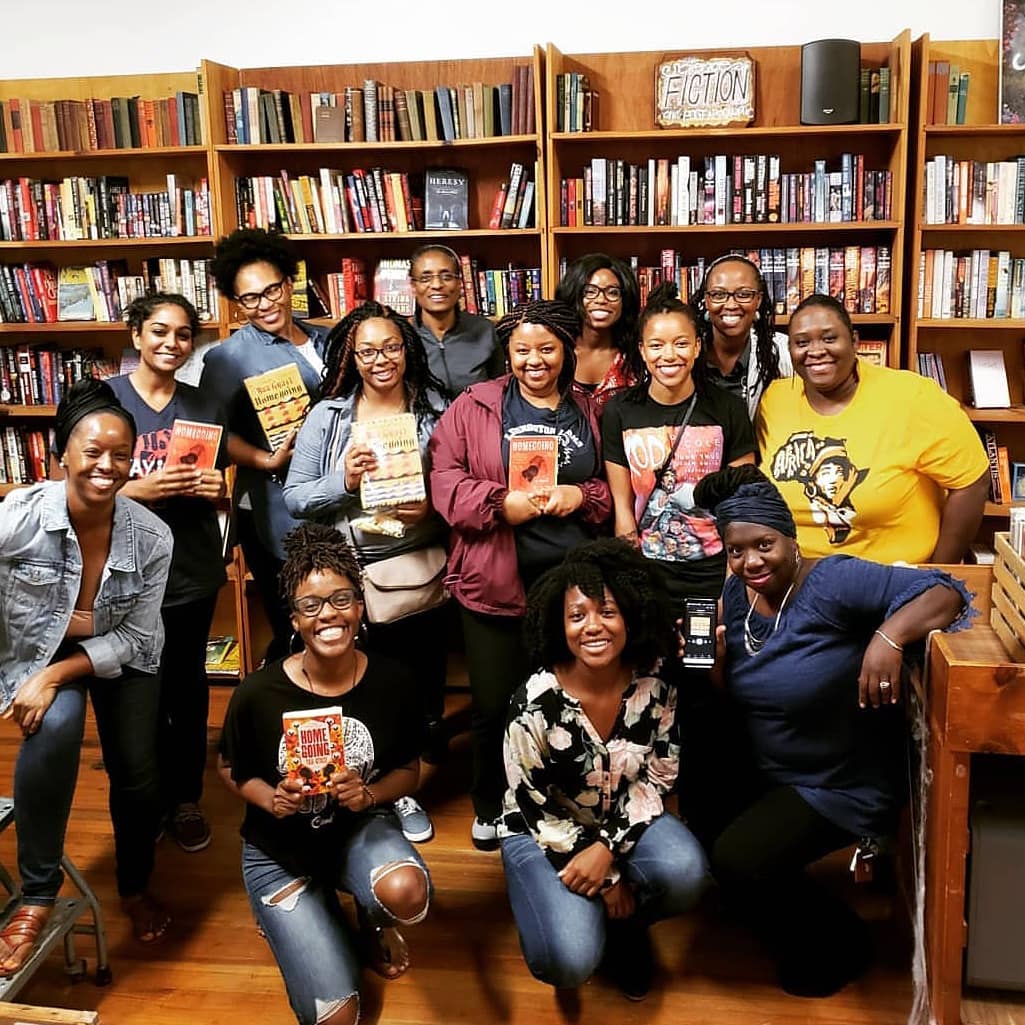
If you consider yourself a bibliophile, for Women’s History Month 2024, organize an in-person or virtual book club focused on reading and discussing works written by Black women or about Black women’s experiences and their struggles throughout history and across diverse cultures.
Encourage your friends to bring their insights and have open conversations about the issues faced and successes achieved by Black female figures throughout the ages. You can invite local authors or scholars specializing in Black women’s literature to lead the book club meeting and offer valuable insight.
You could also incorporate activities such as poetry and spoken word reading, writing workshops, or visiting local literary landmarks associated with influential Black women authors.
Some of our favorite books to devour during Black Women’s History Month include:
- The Little Black Book Of Success: Laws Of Leadership For Black Women By Elaine Meryl Brown, Marsha Haygood, & Rhonda Joy Mclean
- Double Down: Bet On Yourself And Success On Your Terms By Antoinette M. Clarke & Tricia Clarke-Stone
- Ain’t I A Woman By Bell Hooks
- I’m Still Here: Black Dignity In A World Made For Whiteness By Austin Channing Brown
Donate To Organizations & Programs Supporting Black Women
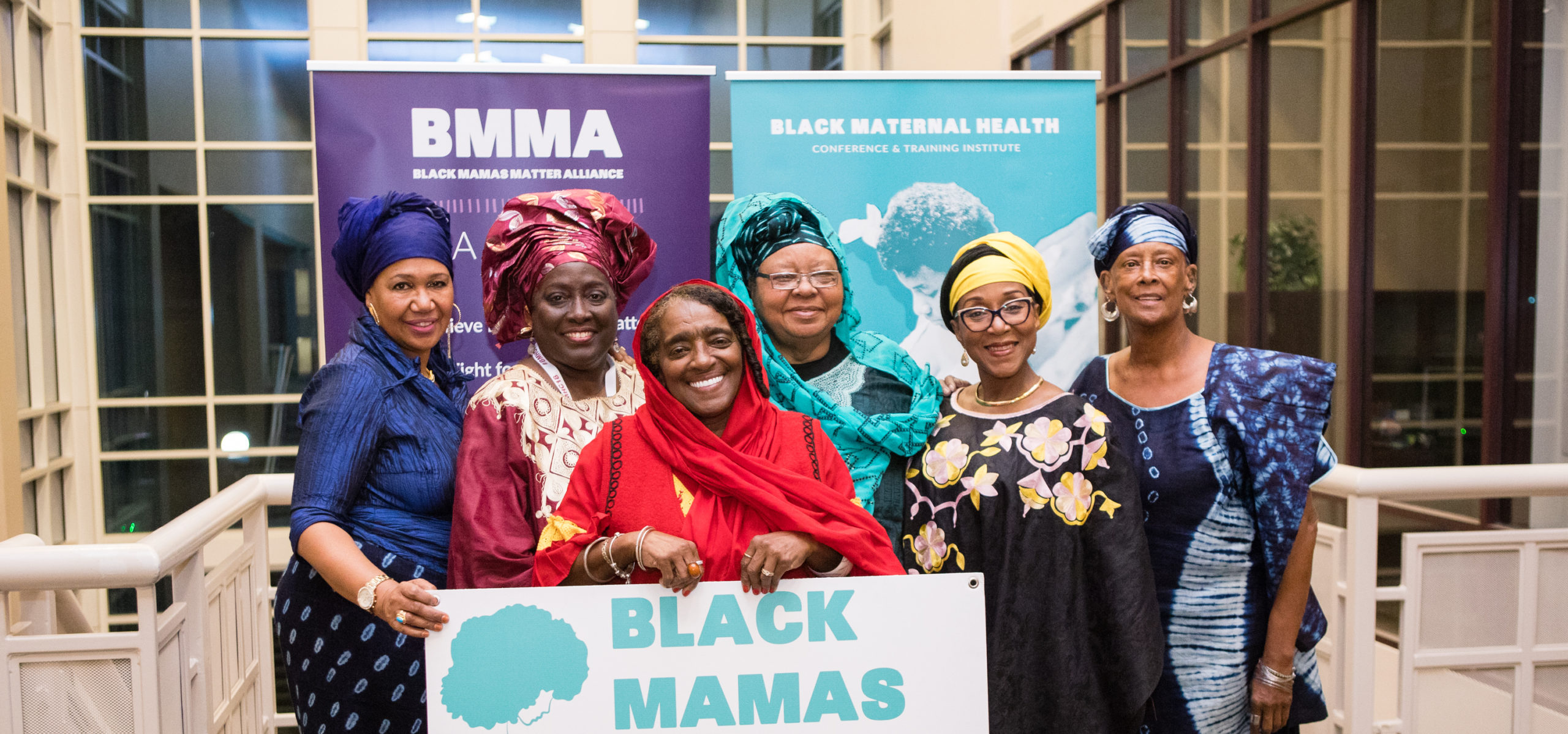
One incredible way to celebrate Women’s History Month is by exploring opportunities to contribute to organizations that empower Black women and girls. These could include initiatives focusing on Black women’s education, healthcare, legal advocacy, and economic empowerment.
Consider supporting local charities and grassroots organizations where your donation can significantly uplift marginalized communities. Additionally, it would help if you considered organizing a fundraiser for a nonprofit committed to inspiring and supporting Black women.
Here are some but a few:
- Black Mamas Matter Alliance
- Black Women’s Health Imperative
- The Black Woman’s Agenda
- Girls For A Change
- Black Girls Code
Show Appreciation To The Black Women In Your Life
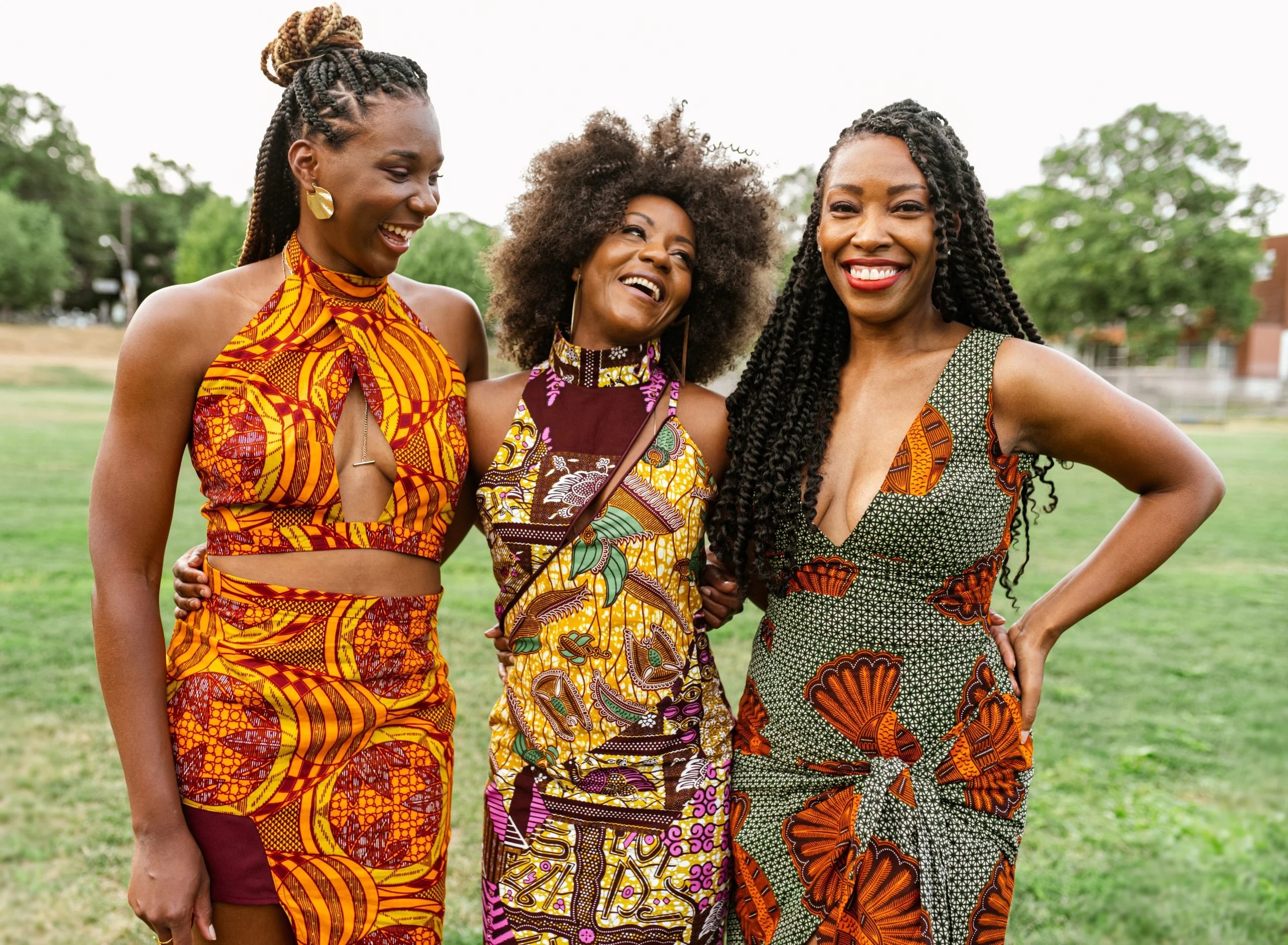
This part is easy. Just grab your stationery, that glitter gel pen you’ve been holding out on, and harness the power of gratitude. Whether it’s your mom, best friend, sister, daughter, or spouse who inspired you to be better, write a heartfelt thank you to the woman who’s made a difference in your life.
If you’d prefer to recognize and celebrate Women’s History Month more grandly, here are some ideas for how you could build a social media campaign to do that:
• Dedicated Carousels: Craft dynamic carousels featuring impactful quotes from groundbreaking women or vibrant posts spotlighting their achievements.
• Interviews: If you own a podcast or vlog, learn how inspiring women influence various industries by engaging in candid discussions with them about their experiences, challenges, victories, and advice.
• Relevant Stories: Share and reminisce on stories of inspiring Black female role models in your life or promote events honoring Women’s History Month in your community.
However you choose to recognize the inspiring women in your life, ensure your content is timely, captivating, and, most importantly, heartfelt and empowering.
Ask For A Raise

Sis – and anyone else who considers themselves underpaid and underappreciated compared to their white, straight, non-disabled peers – let Women’s History Month be your call to action to ask for a raise and fight tooth and nail for pay equity.
If you’re working under a manager, consider taking the first step by discussing your compensation and benefits or even asking for the possibility of a pay raise. Forbes just wrote an incredible article on how to handle this conversation as a Black woman.
If you’re in a managerial role or are satisfied with your current salary, consider exploring and embracing the concept of pay transparency. Review internal policies regarding discussions about compensation and consider making executive salaries public record.
Familiarize yourself with your state’s pay transparency laws to ensure compliance.
Listen To Podcasts & TED Talks Hosted And Featuring Black Women
View this post on Instagram
From activists to artists and CEOS, there’s a wealth of inspiring narratives and advice from women who’ve shattered the glass ceiling and redefined limits in their fields.
Watching and listening to inspiring podcasts and TED Talks by phenomenal Black women can offer insight into other cultures and provide you with new ideas or perspectives while illuminating the remarkable achievements of these trailblazers.
If you’ve perused through almost every new podcast episode or TED Talk, you can try these newly-released gems on for size:
- Let Curiosity Lead By Yara Shahidi
- The Power Of Black Women In STEM By Dr. Ashley Huderson
- Black Women Navigating The Glass Cliff By Therapy For Black Girls
- Rachel Rodgers On How To Establish Million Dollar Habits By Balanced Black Girls
Join Black Women-Based Clubs/Organizations

At the heart of the women’s liberation movement during the 60s and 70s lay the concept of consciousness-raising groups.
These gatherings brought together women of shared beliefs, allowing them to exchange personal experiences within societal frameworks and identities openly. These groups catalyzed collective action through dialogue and introspection, empowering participants to unite and advocate for societal change.
Although a book club and a brunch group might not be the same, being part of a community of women with diverse experiences but shared goals and interests remains a profanely radical and beautiful endeavor.
If you aren’t sure where to start, here are a few great organizations that you can partner with this Women’s History Month:
- Brown Skin Brunchin
- Girls Who Code
- Black Girls Read Too
- The Black Women’s Health Imperative
- Sisterlove Inc.
Have A Dance Party To An All-Woman Spotify Playlist

If you haven’t jammed out to Beyoncé’s “Run The World” at least three times this month, it might be time to reassess your womanhood (just kidding!).
Luckily, every Women’s History Month playlist includes this empowering anthem. Whether you’re on Apple Music or Spotify, you’ll find curated playlists to set your soundtrack.
Alternatively, take a fifteen-minute stroll while listening to the powerful tunes by Black women—let their music inspire and uplift you during this celebratory month.
- Superwoman by Alicia Keys
- My Power by Beyonce
- Respect by Aretha Franklin
- Rise Up by Andra Day
- Woman’s World by B.J. The Chicago Kid
- I Am Not My Hair by India Arie
- Black Woman by Danielle Brooks
- Masterpiece by Jasmine Sullivan
Mentor & Empower A Young Black Woman

Encourage and empower young Black girls to pursue fields where they’re underrepresented. Engage in mentorship programs or attend career fairs that spotlight the remarkable achievements of women in STEM, business, finance, and other industries.
Through exposure to successful Black female professionals, we can instill confidence and inspire young Black girls to fearlessly pursue their goals and aspirations. Additionally, celebrate the contributions of female thought leaders and creators who’ve shaped our world.
Showcasing them what is possible paves the way for them to strive for success and break barriers that still exist in our society.
Ensure You’re Registered To Vote
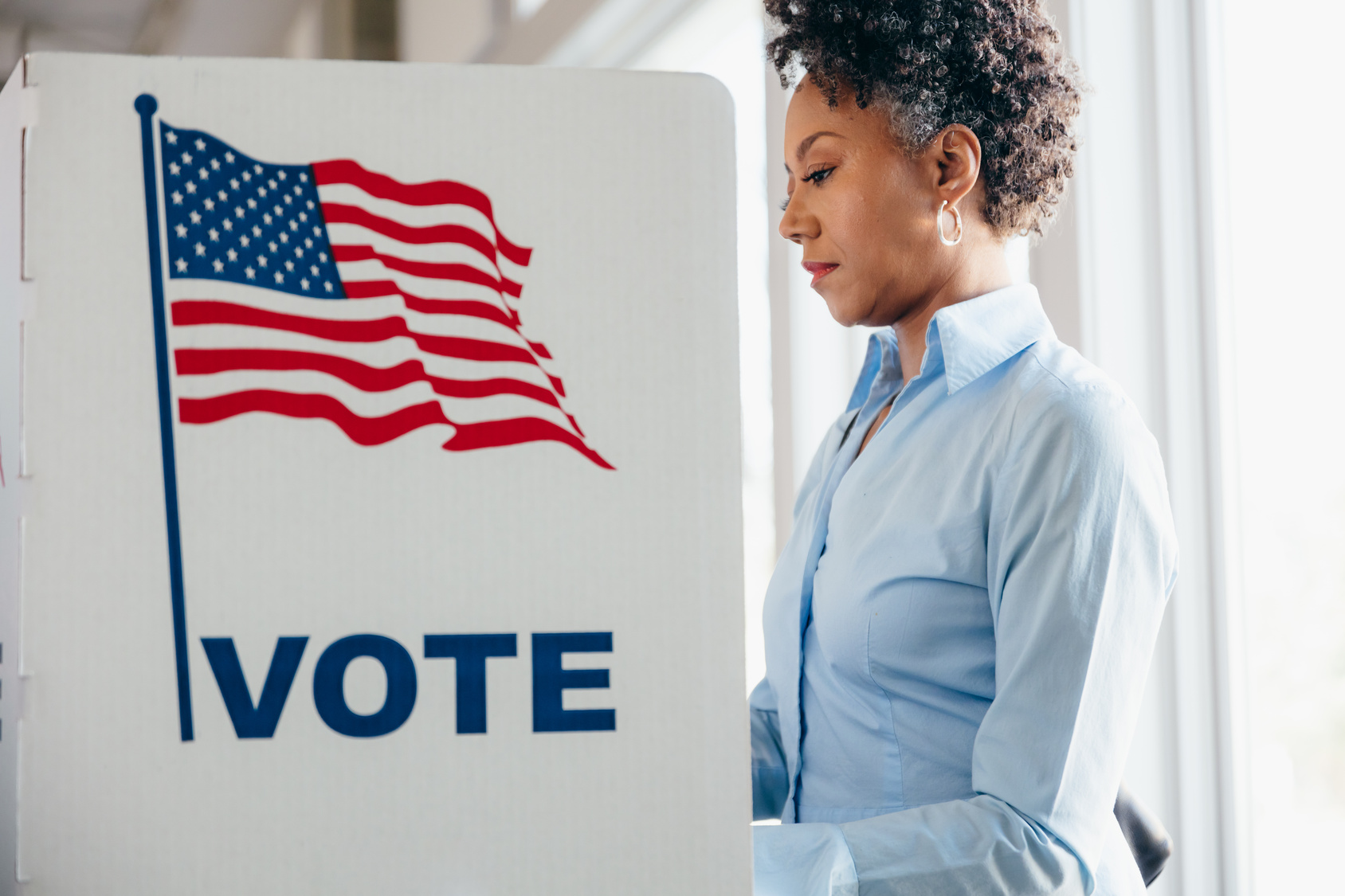
To honor our predecessors, the brave suffragists who tirelessly fought for the passage of the 19th Amendment, granting Black women the right to vote almost a century ago, this Women’s History Month, make sure you’re registered to vote.
These brave Black women understood that equal access to the ballot box strengthens our democratic fabric and that voting is the most impactful action a woman can ever take. It’s how we choose leaders sensitive to women’s needs, healthcare issues, and gender policies.
Play Women’s History Month Games & Trivia
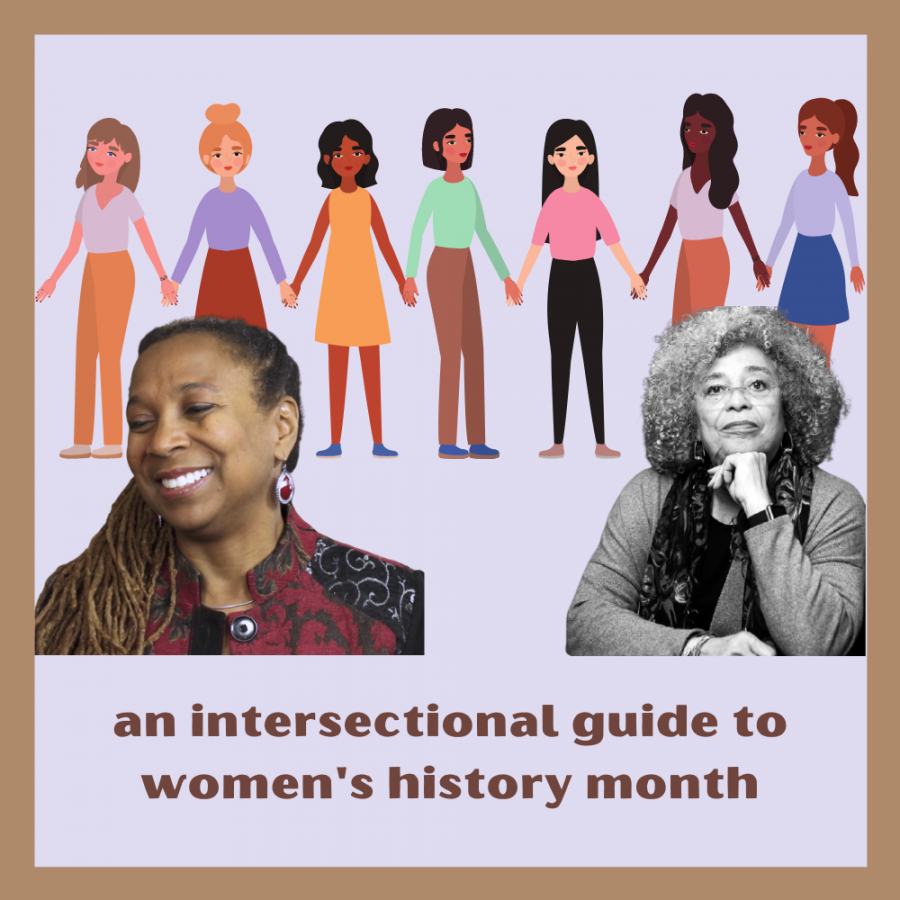
During this last week of Women’s History Month, host a game night with your friends and kids to educate and engage them while diving into the stories of inspiring women throughout history.
And it doesn’t matter whether it’s virtual or in-person trivia questions, team challenges, and game show-like activities will be a fun, educational, and meaningful way for everyone to understand the incredible achievements and tribulations of female trailblazers.
If you don’t know where to find these types of games, Amazon has numerous offerings, including Women’s History Month Trivia Book ($7), Black Women’s History Month Word Search Puzzle ($8), and Famous Black Women in History Crossword Puzzles ($9).
Frequently Asked Questions
What Is The Theme For Women’s History Month In 2024?
The theme for Women’s History Month 2024 is ‘Women who advocate for equity, diversity, and inclusion.’
According to the National Women’s History Alliance, ‘the theme recognizes women throughout the country who understand that for a positive future, we need to eliminate bias and discrimination from our lives and institutions.
Where Is Women’s History Month Celebrated?
Women’s History Month is celebrated in Australia, the United Kingdom, and the United States. In Canada, it is observed in October, aligning with Persons Day, typically held on October 18.
This day commemorates the landmark decision in 1929 when Canada’s highest court ruled to include women in the legal definition of persons.
What Are The Colors For Women’s History Month?
Women’s History Month colors include purple, green, and white. Each color has its roots in the suffrage movement and carries contemporary significance.
White symbolizes equality, truth, and freedom; green signifies hope and growth, while purple embodies women’s struggle for suffrage.


